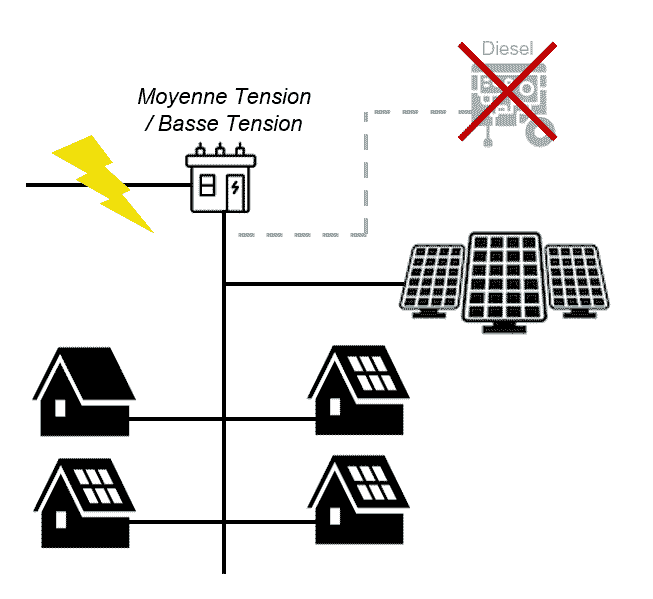At present, in the event of a village power cut that is likely to last a long time, Enedis, the electricity grid system operator in France, usually provides a generator to power the village for the time needed to repair it. As part of the thesis which she started in October 2021 at G2Elab, Jane Marchand will work on a method to control the inverters so that the village’s electricity network can be restarted independently. The inverters allow local photovoltaic production or energy from a back-up battery to be injected into the grid.
This would reduce the carbon footprint by avoiding the use of generators, reduce power outage times, and provide resilience to the village, making it less dependent on on-site operations by Enedis. But for this to happen, several obstacles need to be overcome. In particular, inverters will have to be controlled in such a way that they are able to create a network from solar panels or batteries and keep its voltage steady, whereas today they are only programmed to power it.
At the same time, Jane Marchand intends to use smart meters to monitor household consumption in order to avoid the collapse of the grid in the event of an imbalance. “For the time being, all this is purely theoretical, as villages are not allowed to operate autonomously due to islanding being potentially dangerous.”
Currently in the early stages of her thesis, the young researcher plans to test her grid-forming ideas through simulation, first on a very small scale with one inverter and one load (e.g. a house), and then with two inverters, in order to verify the potential interactions between the two. Experimentation phases are to follow as part of a larger project.
*CNRS, Grenoble INP – UGA, UGA




